A Winning Interim Consulting CV
We often get asked for advice on how to present a CV for an interim consulting role in a way that will give you the best chance of success.
The best advice, of course, is not to have to rely on a CV at all! If you are known to a potential buyer, trust is already established and the hirer will judge from previous personal experience if you are suitable for the role. Sadly, it is not always possible to find a role from an existing contact and that is where B2E, and companies like us, can help.
The interim consulting market place is crowded with very talented people who are often experienced in a multitude of knowledge domains and skillsets. Many will have worked for large consulting organisations where raw talent and availability was probably more important than direct prior experience. This is not the case in the selection of interim consultants through intermediaries.
If you are applying for roles through intermediaries, your CV is critical to your success. It is your main means of communicating your suitability for the role, a sales tool to get you to interview to show off your broader experience and personal qualities that cannot be conveyed through the CV.
Here are some hints & tips on writing an effective Interim Consulting CV as a response to a specific role – our 6 key dos and don’ts….
1. Do not apply unless you have significant experience in the areas requested
Given the competition for roles and the clients concern to minimise risk, having one previous example of completing a similar project is unlikely to be persuasive. As a rule of thumb, we normally expect to see 4 or 5 directly related projects to the stated requirement.
2. Do not send your general CV
It is critical that your CV ‘speaks’ directly to the requirements of the role. Before responding to a role be sure to understand what you feel the critical capability requirements are. B2E’s role alerts usually spell these out for you.
3. Do tailor your summary to match the role
Having a summary paragraph at the top of your CV is a great idea — it should emphasise your experience related to the key requirements for the role in broad terms.
4. Do select specific projects that show your related experience
After the Summary Paragraph feature the 4 or 5 projects where you have completed similar work to the client’s requirements.
5. Do include a Career Summary
Add a short, complete chronological career summary showing employers, dates and roles.
6. Do include qualifications and dates
Include your undergraduate and post graduate degree, plus any professional qualifications that you hold, such as Prince 2 etc.
More generally;
7. Your CV must be concise
Resourcing consultants and hiring managers will read literally hundreds of CVs in a day, so the shorter and punchier the better! Whilst some suggest that an optimal length is 2 pages of A4, you may find it impossible to condense your experience this much. 3 or 4 pages is fine… but if it’s 7 or 8, you risk losing your audience’s attention.
8. Keywords must leap off the page
This is important for two reasons. One, resourcing consultants and hiring managers use database searches to search for certain keywords. Secondly, when they visually scan a CV, they will want to see those keywords again and again. So for example, if you have a specialism in SAP, make sure your CV says “SAP” many times.
9. Be results-focused
Explain each key project you worked on in the same format. What was the goal of the project? What were your specific responsibilities on it? What achievements could be measured as a direct result of your efforts?
10. Sell yourself at two levels — competency and industry knowledge
Resourcing consultants and hiring managers are looking for two things. One, your competencies and skills that can be applied to any industry; for example, project or change management. Two, your industry knowledge and domain expertise — how much do you know about their sector? For some roles, you might need both a competency and deep industry knowledge, for others the competency might be enough — but don’t forget to detail both.
11. Don’t leave anything unexplained
Resourcing consultants and hiring managers will quickly check to see there are no chronological gaps or inconsistencies. If you took a year out to go travelling, say so. If you don’t put down your degree result, they may assume you got a third — it’s better to say you got a 2:2!
12. Format the document as simply as possible
Often resourcing companies and hiring managers will have to copy and paste the text of your CV into a “house style”, or enter it into an online system. Complex formatting can make this very difficult, so avoid the use of tables and borders. At best, you will annoy the person amending your CV… at worst, they might ignore your CV all together! I’d recommend using Word rather than PDF too.
13. Include your name in the document filename
Use a file naming convention that contains the key information; your name, role and date. This is a real help to make sure your CV stands out as one suitable for the role.
About the author, Tony McNeill
Tony is a co-founder of B2E Resourcing, having spent over 15 years working with Accenture working on a wide range of blue chip multinationals, managing large-scale and complex change programmes. He is an experienced and pragmatic management consultant with over 30 years business experience.










